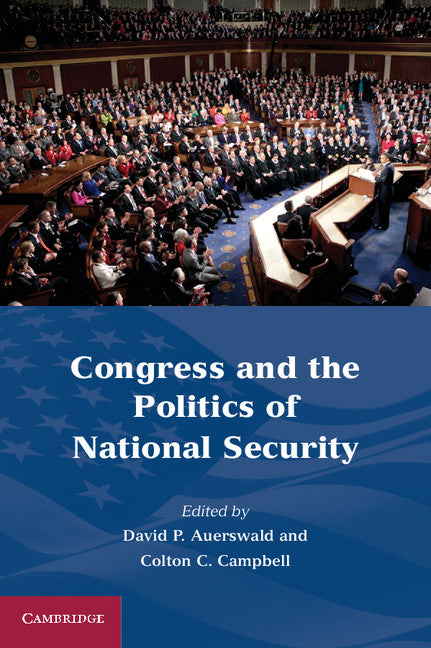Freshly Printed - allow 4 days lead
Couldn't load pickup availability
Congress and the Politics of National Security
This volume examines variation in the ways Congress has engaged federal agencies overseeing our nation's national security.
David P. Auerswald (Edited by), Colton C. Campbell (Edited by)
9780521187268, Cambridge University Press
Paperback, published 19 December 2011
280 pages, 3 b/w illus. 6 tables
22.8 x 15.2 x 1.4 cm, 0.37 kg
In an increasingly complex and unpredictable world, a growing number of observers and practitioners have called for a re-examination of our national security system. Central to any such reform effort is an evaluation of Congress. Is Congress adequately organized to deal with national security issues in an integrated and coordinated manner? How have developments in Congress over the past few decades, such as heightened partisanship, message politics, party-committee relationships and bicameral relations, affected topical security issues? This volume examines variation in the ways Congress has engaged federal agencies overseeing our nation's national security as well as various domestic political determinants of security policy.
Part I. Historical and Institutional Challenges: 1. Congress and national security David P. Auerswald and Colton C. Campbell
2. Congress and US foreign policy: an overview Robert David Johnson
3. Institutional challenges confronting congress post 9/11: partisan polarization and effective oversight Mark J. Oleszek and Walter J. Oleszek
Part II. Oversight Challenges: 4. Congress and defense Pat Towell
5. Congress and homeland security Timothy Balunis and William Hemphill
6. Congress and intelligence Loch K. Johnson
7. Congress and foreign aid Susan B. Epstein
Part III. Policy Challenges: Contours and Debate: 8. Enemy combatant detainees Harvey Rishikof and Bernard Horowitz
9. Arms control David P. Auerswald
10. National security surveillance Louis Fisher.
Subject Areas: Laws of Specific jurisdictions [LN], Politics & government [JP]


